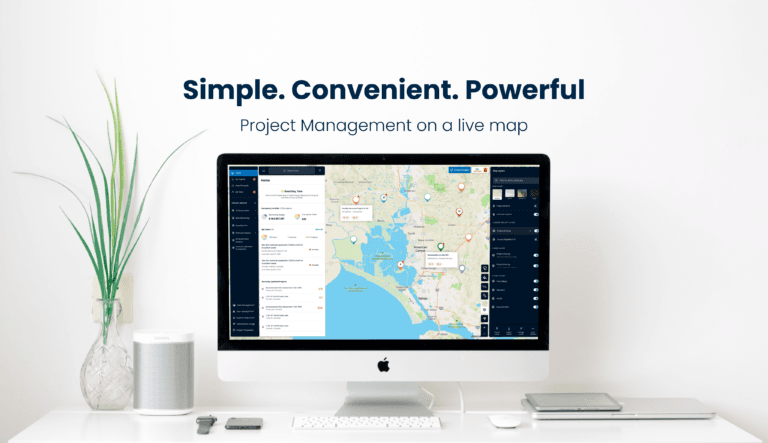Artificial intelligence (AI) is revolutionizing the management of field projects across various industries. By automating tasks, enhancing decision-making, and improving efficiency, AI technologies are addressing traditional challenges associated with field operations. This article explores the diverse applications of AI in managing field projects, highlighting real-world examples and the benefits realized.
Introduction to AI in Field Project Management
Field projects encompass industries such as construction, oil and gas exploration, agriculture, and forestry, where operations are primarily conducted on-site. These projects often deal with complex logistics, dynamic environments, and high-risk factors that can impact efficiency, productivity, and safety. Traditional management approaches rely heavily on manual oversight, human expertise, and historical data, which can sometimes lead to inefficiencies and unforeseen risks.
The integration of Artificial Intelligence (AI) is transforming the way field projects are planned, executed, and monitored. By leveraging data-driven insights, automation, and predictive analytics, AI is providing solutions to some of the most persistent challenges in field project management, such as:
- Unpredictable Environments: AI-powered weather forecasting and real-time environmental monitoring help mitigate risks associated with extreme conditions. For instance, in construction projects, AI can assess potential weather disruptions and suggest adaptive scheduling strategies (MIT Technology Review).
- Resource Allocation Issues: AI-driven optimization tools analyze project data to enhance resource distribution, reduce waste, and improve cost efficiency. Companies like Trimble and Autodesk offer AI-powered solutions that optimize construction material usage and workforce allocation (Autodesk).
- Safety Concerns: AI-powered computer vision and IoT-based sensors enhance worker safety by detecting hazardous conditions in real-time. AI-driven surveillance systems in the oil and gas sector monitor sites for potential leaks or unsafe conditions, reducing the risk of accidents (World Economic Forum).
- Project Efficiency and Cost Reduction: Machine learning algorithms analyze past project performance to predict timelines, detect inefficiencies, and recommend optimizations. AI-driven scheduling software, such as Oracle Primavera P6 and Microsoft Project, assists in real-time project tracking and predictive delay analysis (Oracle).
By integrating AI into field project management, companies can enhance productivity, reduce operational risks, and improve overall decision-making. As AI technology continues to evolve, its role in streamlining field operations and increasing project success rates is expected to grow significantly.
AI Applications in Various Field Projects
1. Oil and Gas Decommissioning
In the North Sea, AI technology developed by Rahd AI, in collaboration with major energy companies like Equinor and TotalEnergies, has the potential to reduce decommissioning costs by up to 35%. By analyzing data from over 15,000 wells, AI determines the most efficient decommissioning methods, potentially saving the UK Treasury more than £8 billion by 2027. (The Times)
2. Infrastructure Maintenance
Sydney’s local councils are utilizing AI to detect and address potholes before they cause vehicle damage. Smartphones mounted on garbage trucks scan roads for defects, enabling timely maintenance and enhancing road safety. This proactive approach has led to the rectification of over 10,000 issues in three months. (dailytelegraph)
3. Forestry Management
In Tasmania, Forico has installed AI-powered cameras for early bushfire detection. These cameras enhance the accuracy of pinpointing fire locations through triangulation, protecting forestry assets and public safety from the increasing threat of bushfires. (Herald Sun)
4. Agriculture in Rural Africa
Rural farmers in Malawi are receiving agricultural advice via a generative AI chatbot app called Ulangizi, which responds to inquiries in Chichewa. This initiative aims to democratize access to knowledge and expertise, overcoming barriers faced by low-literacy communities with limited resources. (The Times)
5. Oil Extraction Optimization
In the Permian Basin, AI is utilized to enhance oil extraction, ensuring the region’s productivity for decades. AI helps increase oil output, reduce costs, and manage operations remotely, significantly boosting efficiency and reducing greenhouse gas emissions. (Barron’s)
AI Tools Enhancing Project Management
Several AI-driven tools are transforming project management by automating tasks, providing predictive analytics, and enhancing collaboration. Notable examples include:
- Notion: An all-in-one workspace that combines note-taking, task management, and collaboration features. Its integration capabilities allow seamless connection with other apps. (SJ Innovation LLC+1Bricks+1)
- Otter.ai: An intelligent transcription service that records meetings and generates accurate transcriptions along with summaries, ensuring no critical points are missed. (SJ Innovation LLC)
- Beautiful.AI: Assists in creating visually appealing presentations effortlessly, maintaining consistency in design and saving time. (SJ Innovation LLC)
- Zapier: Connects different applications, allowing automated workflows and reducing manual intervention required frequently throughout project lifecycles. (SJ Innovation LLC)
- Smartsheet: A versatile work management platform incorporating AI-driven features to enhance productivity and streamline project workflows. (SJ Innovation LLC+1Thurman Co+1)
Benefits of AI in Field Project Management
Integrating AI into field project management offers several advantages:
- Enhanced Decision-Making: AI provides data-driven insights, enabling managers to make informed decisions quickly.(Barron’s+1Latest news & breaking headlines+1)
- Improved Efficiency: Automation of routine tasks allows teams to focus on strategic aspects, reducing time and resource wastage.
- Predictive Analytics: AI forecasts potential issues, allowing proactive measures to mitigate risks.
- Resource Optimization: AI assists in efficient allocation and utilization of resources, ensuring optimal productivity. (Barron’s)
- Safety Improvements: AI technologies enhance safety measures by predicting and preventing potential hazards. (dailytelegraph)
Challenges and Considerations
While AI offers numerous benefits, its implementation in field projects comes with challenges:
- Data Quality: AI systems require high-quality data for accurate analysis and predictions.
- Integration with Existing Systems: Seamless integration with current workflows and systems is essential for effectiveness.
- Cost of Implementation: Initial investment in AI technologies can be substantial, requiring careful cost-benefit analysis.
- Skill Requirements: Teams need appropriate training to effectively utilize AI tools and interpret their outputs.
Skill Requirements: Teams need appropriate training to effectively utilize AI tools and interpret their outputs.
Future Outlook
The integration of Artificial Intelligence (AI) into field project management is poised for significant growth, driven by continuous advancements that enhance its capabilities and applications. As AI technologies become more accessible and cost-effective, their adoption is expected to rise, leading to transformative changes in project management practices.
A notable projection by the Harvard Business Review suggests that by 2030, AI could automate up to 80% of project management tasks, including scheduling, data analysis, and reporting. This automation promises to reduce administrative burdens and allow project managers to focus on strategic planning and stakeholder engagement.
Furthermore, the Project Management Institute (PMI) emphasizes that AI tools will enhance business acumen by handling time-consuming tasks, freeing project managers to concentrate on organizational objectives and relationships. Generative AI can augment project managers’ abilities to understand strategic implications, enabling better decision-making. (Project Management Institute)
However, the widespread adoption of AI in project management is not without challenges. A study published on ResearchGate highlights potential obstacles such as technical issues, human resource-related concerns, organizational resistance, and legal considerations. Addressing these challenges requires comprehensive change management strategies and proactive stakeholder engagement. (ResearchGate)
In summary, the future of AI in field project management is promising, with the potential to revolutionize traditional practices. By embracing AI technologies, organizations can enhance efficiency, improve decision-making, and achieve better project outcomes.
Conclusion
Artificial Intelligence is playing a pivotal role in transforming the management of field projects across various industries. By automating routine tasks, providing predictive analytics, and offering data-driven insights, AI addresses traditional challenges associated with field operations. The integration of AI leads to enhanced decision-making, improved efficiency, and increased safety in project execution.
As organizations continue to adopt AI technologies, the landscape of field project management will evolve, resulting in more streamlined and effective operations. Project managers will need to adapt to these changes by developing new skills and embracing innovative tools. The future of project management lies in the synergy between human expertise and artificial intelligence, paving the way for more successful and efficient project deliveries.(LinkedIn)




.jpg)
.jpg)

.jpg)
.jpg)
.jpg)


.jpg)





























